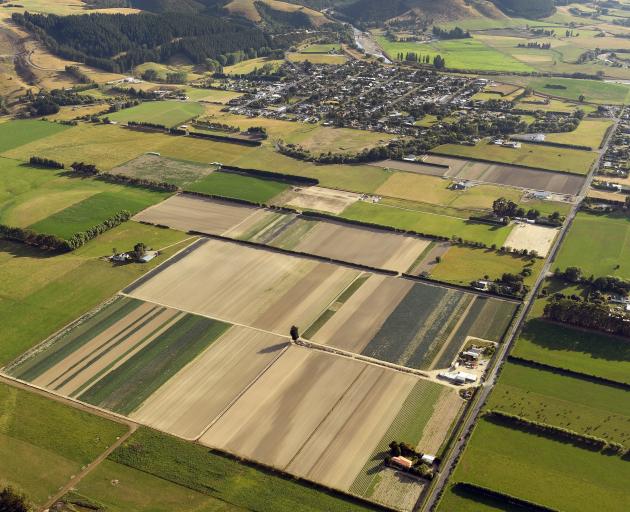We must protect our our soil; it is precious

Soils as such contain much greater and diverse micro-organisms than water. Soils are living matters and not dirt as some of us call them.
High-class soils are more special. They are nature's geological marvels with excellent physical and chemical properties conducive to high yield and quality. The unique ability of such soils to support diverse crops earned ‘‘versatile soils’’ status and the complimentary term ‘‘elite soils’' because they occupy only 5% of our land (1.34million ha). Most such soils are in flat or gently rolling landscapes.
Where do we find these magic soils?
The Canterbury, Waikato, Taranaki and Manawatu-Whanganui regions are gifted with more than 70% of our elite soils, while Otago has a meagre 3.6% and the carrot-growing Southland region 12.4%. ...
... Urban sprawl has become the number one enemy for our elite soils. Between 1996 and 2012 the urban land occupation grew by 21,050ha (a 10.2% increase).
Lifestyle blocks are the next enemy. Much of the 187,000ha in lifestyle blocks is non-productive, which occupies 13.5% of our elite soils. Elite soils are lifelines for our horticultural industry with typically high revenues which use large work forces.
For example, the gross revenues from potatoes and pip fruit are $28,000 and $45,000 per hectare respectively.
Given the rarity and the proximity to urban areas, the district-based trade-off of these disproportionately distributed elite soils to housing could impact our whole nation's self-sufficiency in fruits and vegetables, income, export and job opportunities.
With many housing and infrastructure shovel-ready projects waiting to bypass the normal RMA process, it is highly likely the assault on our versatile soils will continue unless the appointed panels decline such projects. ...
... The RMA is toothless in sustaining our highly productive land. Despite
the fact our horticultural industry is underpinned by our unique soils,
there are no powers to control the use and protect our prime land from
fractionation and urbanisation. Unlike degraded water quality which can
be restored, the loss of each hectare of our elite soils is
irreversible, like our diminishing endangered native animal species. ...
Worth reading, the whole article is at https://www.odt.co.nz/opinion/we-must-protect-our-our-soil-it-precious

No comments:
Post a Comment
Comment here: